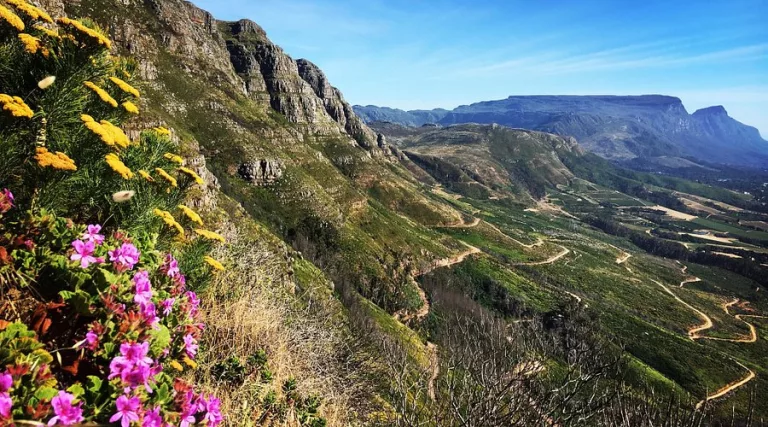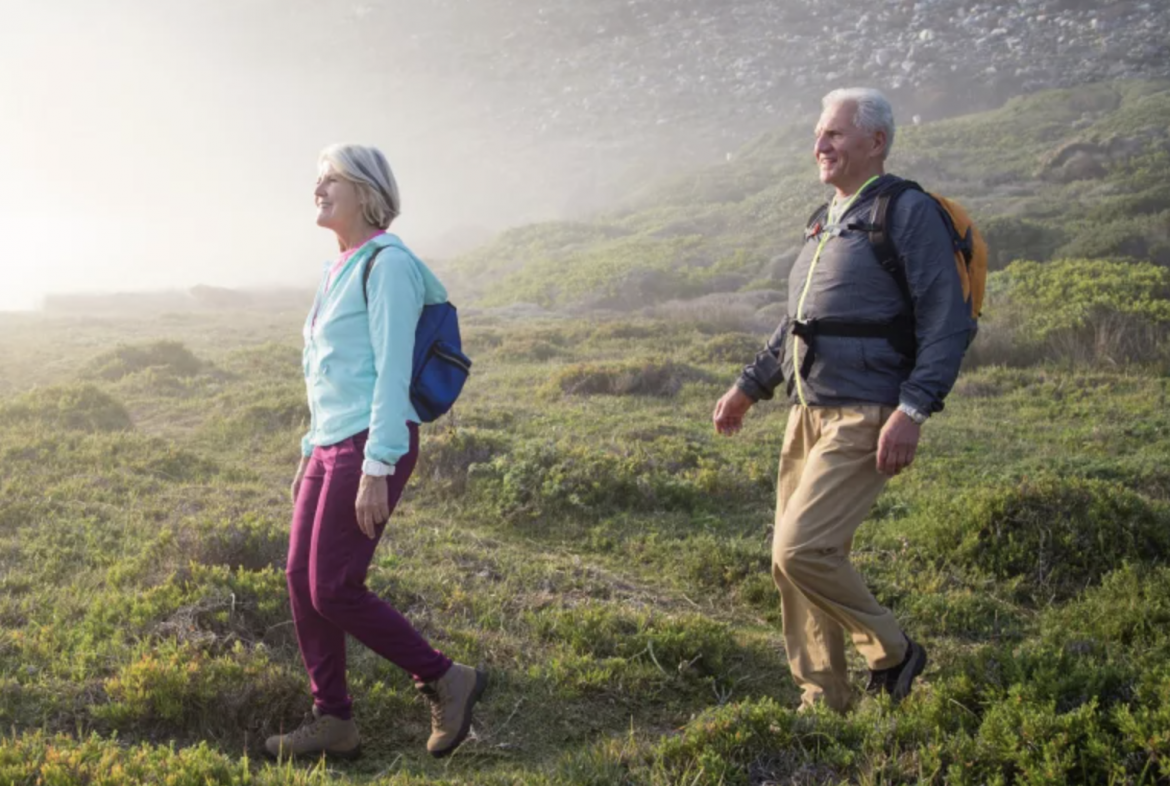As more South Africans embrace active lifestyles later in life, hiking has become one of the most rewarding ways to stay fit, clear your mind, and connect with nature.
Whether you’re rediscovering the joy of walking or stepping onto the trail for the first time, hiking over 50 can be deeply fulfilling, with just a few smart adjustments.
Here are ten trail-tested tips to help you hike with confidence, comfort, and purpose.
Know your trail and yourself
The best hikes start with preparation. Choose routes that match your current fitness level rather than what you tackled in your twenties. Look for trails with gentle gradients, firm footing, and clear signage—perfect options include the Silvermine Nature Reserve trails or Newlands Forest Contour Path in the Western Cape, and Kranskloof Trail in the KZN Midlands. Use apps like AllTrails or Green Flag Trails to research route difficulty, elevation gain, and recent reviews.
Invest in comfortable, supportive gear
Aches and injuries often start with bad gear. Invest in quality hiking shoes with proper arch support and cushioning. Moisture-wicking, lightweight clothing helps regulate temperature, while a sunhat and UV-blocking sunglasses protect against harsh rays.
Pack list musts:
- Trekking poles (reduce joint strain)
- A hydration bladder or water bottle
- Weatherproof attire and boots
- Energy-boosting snacks like trail mix or fruit rolls
- First-aid kit
- Maps
Don’t skip the warm-up (or cool-down)
Older joints need a little coaxing. Gentle stretching before and after your hike can go a long way in preventing stiffness and injury. Simple ankle circles, leg swings, or hip openers are a good start. Don’t rush—hiking should feel like a moving meditation.
Hike with friends, or join a group
Solo hikes can be serene, but there’s added safety and joy in shared strides. Group hikes foster community and encourage consistency—plus you’ll discover new trails and tips from seasoned walkers.
Here are a few hiking clubs across South Africa catering to 50+ hikers:
- Ramblers Club Durban – Welcomes all fitness levels with regular coastal and inland hikes.
- U3A Hiking Groups – The University of the Third Age has walking and hiking groups in cities across SA.
- Johannesburg Hiking Club – A mix of urban and mountain walks, often with carpool options.
- Peninsula Ramblers – Cape Town-based group with graded hikes and a sociable culture.
- Mountain Club of South Africa – For more adventurous hikers, offering various hikes with safety protocols.
Protect your Joints—especially on descents
Use walking poles to absorb shock, especially when going downhill. Engage your core and take small, deliberate steps. Step sideways if necessary. If you struggle with knees or hips, avoid trails with extended rock scrambles or loose gravel – if it feels sketchy, it’s okay to turn back, you can always return another day.
Listen to your body’s new rhythms
You might tire faster or need more hydration breaks—and that’s okay. Be kind to yourself. Take time to rest, refuel and take in your surroundings. Watch for signs of overexertion like dizziness, cramping, or rapid heartbeat. Combine protein and carbs—like a hard-boiled egg and a banana—for sustained energy.
Let your doctor be part of your journey
If you’re managing a chronic condition like high blood pressure, diabetes, or arthritis, speak to your doctor before starting a new hiking habit. Many will encourage it and may offer helpful adjustments or medications for elevation or exertion.

Picture/Tripadvisor
Pick the right time of day (and year)
Start hikes early in the morning when it’s cooler. Avoid trails in midday heat, especially in summer. Spring and autumn are ideal for most regions, offering crisp air and fewer crowds. Try to avoid unfamiliar trails alone in winter or after rain, as slippery paths are a common cause of injury.
Carry the essentials—always
No matter how short the trail, carry water, a fully charged phone, sunscreen, a basic first aid kit, and an emergency whistle. For longer hikes, add a headlamp and a light fleece or thermal blanket.
Make it more than a hike
Combine walking with other passions—photography, journaling, or foraging. Some trails even double as heritage walks, like those in the Drakensberg, Hogsback, or Franschhoek. Let every hike become a story worth telling.
Easy trails to start with
These beginner-friendly walks are scenic, safe, and suitable for over-50 hikers:
- Silvermine Reservoir Trail (Western Cape): Flat, circular route with tranquil views. ±1.5km
- Krantzkloof Trail (KwaZulu-Natal): Gentle slopes and forest surrounds. ±2.5km
- Modderfontein Reserve Trail (Gauteng): Flat trails near water and grasslands. ±3km
- Dassie Trail – East London (Eastern Cape): Easy loop past waterfalls and forest. ±2km
- Lesodi Trail (Limpopo): This trail is ideal for the novice who wants to go on a Sunday morning stroll. ±5.1km
The beauty of hiking over 50 is that you don’t have to prove anything—you’ve earned the right to savour the journey, listen to your body, and soak in the silence.
Article originally published by Getaway
ALSO SEE:
SA woman chases top safari guide title – ‘Aim high and don’t settle!’
Feature Image: Essentially Sports

